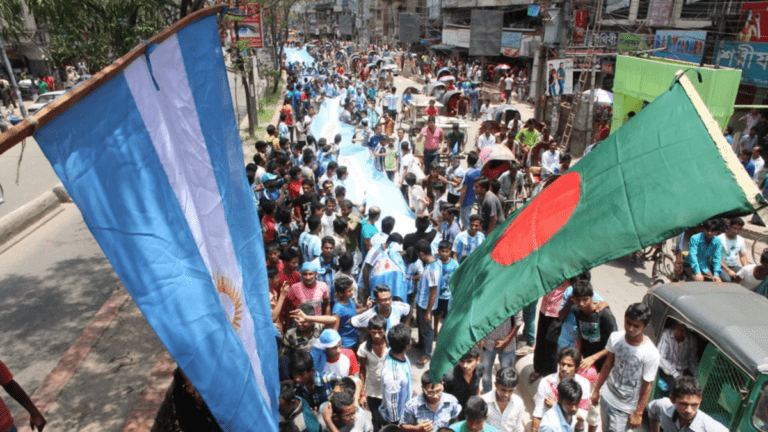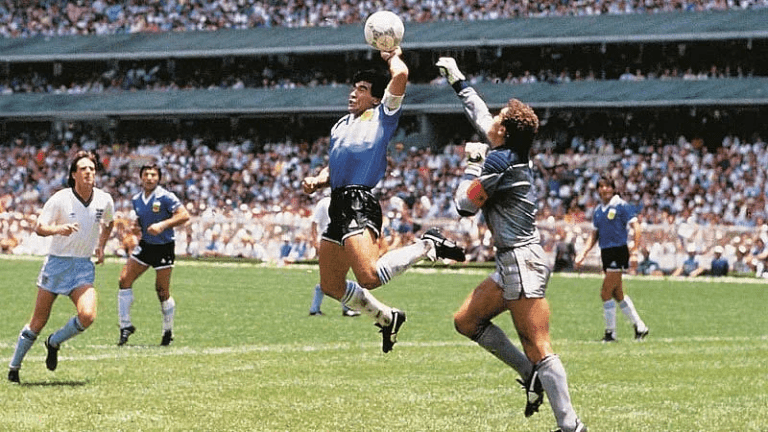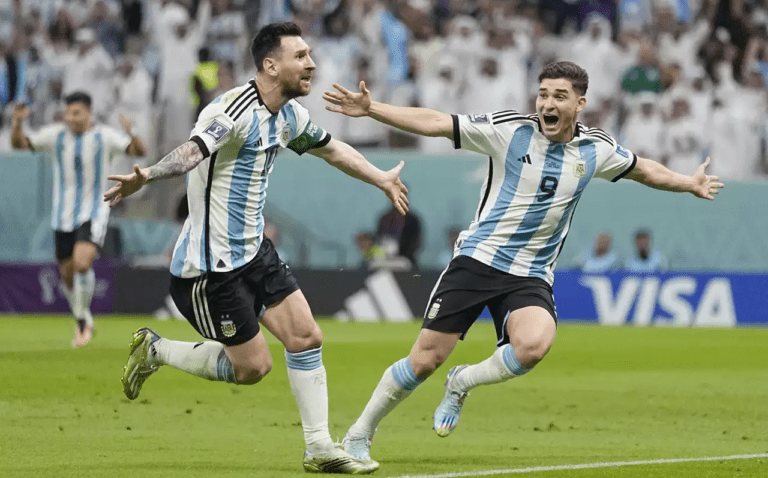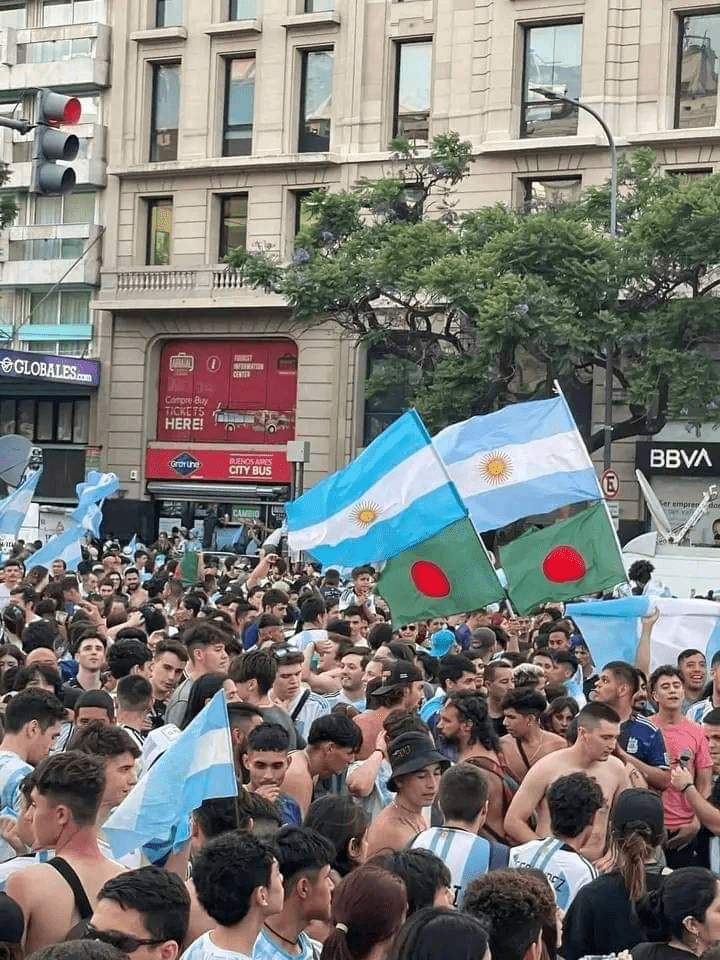Subir Das –
In the 90s, the eyes of a toddler were not glued to a tab screen, nor was an elderly swiping across the phone every now and then, and therefore, television was the only resort for sports gigs all across the world. Back then, TV program managers could anticipate a common request – broadcasting the goal of the century, a near-Mythical incident conquering the heart of every Bengali. Maradona, a footballer personifying passion, love, and courage, had dribbled like an alien and navigated as if through the Cretan maze. He took the ball from the midfield to the goalpost breaking the wall of resistance erected by opponent English players. As a school kid, I felt a blind urge to watch the goal just once since my parents, relatives, and seniors endowed me with a fairytale narrative – one man against an army of opponents. Born in 1986, the year when that legendary goal cast a spell on the world and made Maradona a household name in Bangladesh, I grew up over the years trying to visualize how that once-in-a-100-year feat had taken place, but couldn’t watch it till the advent of streaming channels like YouTube.

The day I finally treated my eyes to this unforgettable moment made me realize why Argentina and Maradona had a gigantic fan base in Bangladesh. His two goals, both being the most charismatic ones in the history of football, in the quarter-final match against England, catapulted the legendary athlete to the stratosphere of fame. One of them stupefied the opponent using his hand when Maradona deceived the eyes of the Referees by flicking the ball with a hand instead of his head. Two decades later, the Argentine legend admitted that he had done it willingly to protest the English invasion of an Argentine island. Interestingly, the meteoric rise of Maradona to stardom coincided with the color television revolution in Bangladesh, and the spark of love and admiration he lit among the hearts of the millions of Bengalis has never dwindled. A real-life hero with feet dancing like the Latin American percussion rhythm and a face radiating the look of a fighter evoked a glimmer of hope amid a nation, then with a stifled voice under a military dictator, in another part of the world, oceans away.

The legacy of rooting for Argentina, with whom Bangladesh shared neither geographic proximity nor diplomatic connectivity, was passed on through generations, and another little master seemingly landed from heaven years later to reignite the hope lighted up by Maradona. Lionel Messi appeared to hail from another galaxy with his out-of-this-world dribbling skill, curving-in-the-air shots, and hawk-like focus. Like Batman or Superman, a superheroic figure seemed to jump straight out of the pages. Despite his career book overflowing with awards and accolades surpassing any other player of any time, he had only one feather missing from his crown, the biggest show of the world, the World Cup. But, after dramatic turns and twists, Argentina rode on Messi’s shoulder to clinch the World Cup trophy, making the Bengali nation roar once more in unison like Beethoven’s symphony.

Unlike the time of Maradona, the 2022 celebration of the Argentine victory by Bangladesh was reciprocated with an equal level of passion and love. Thanks to the Internet revolution, Bangladesh’s support for Argentina became viral and inspired Argentines to fly the majestic red and green flag of Bangladesh. When Messi’s mother chanted the name of Bangladesh and thousands of Argentines screamed the slogan for Bangladesh, it made me feel that our country set the precedence of loving without anticipation, embracing even a faraway people as their own, without knowing whether their words of love would ever be heard by the other side. That fiery passion has made us dream and that made it happen. Vamos Argentina! Long Live Bangladesh!




